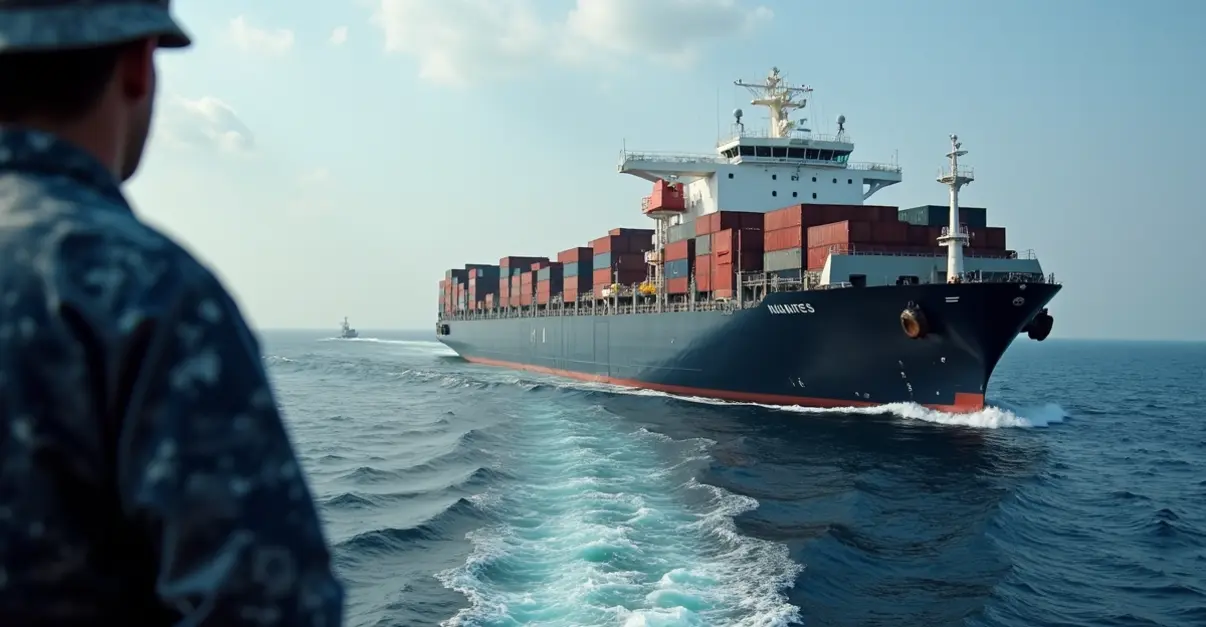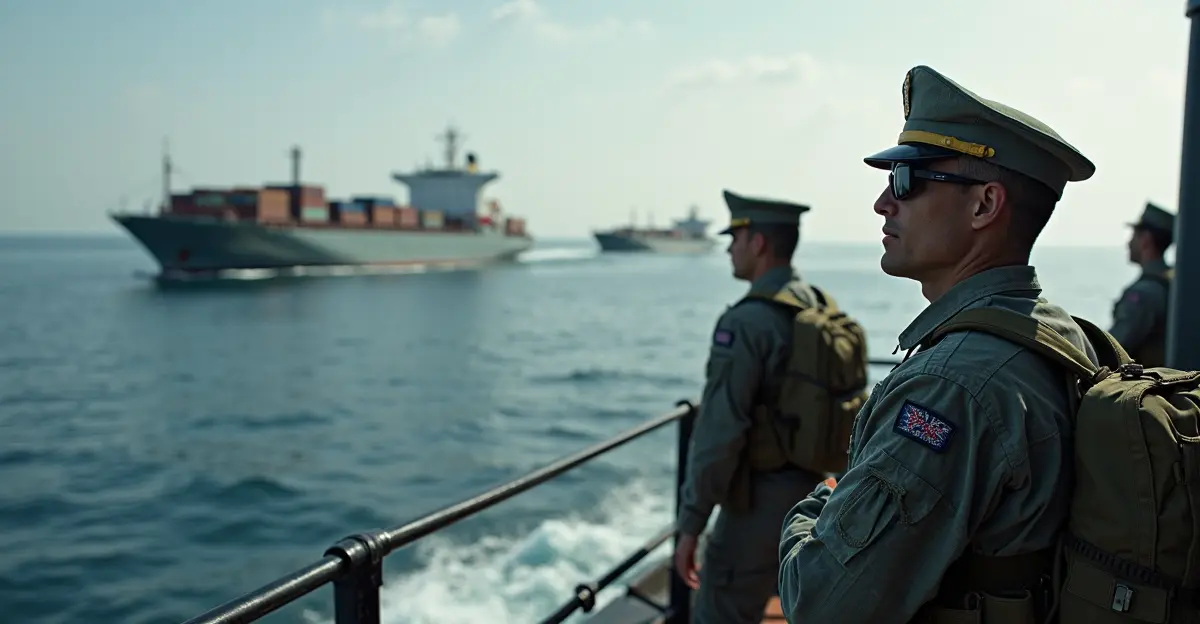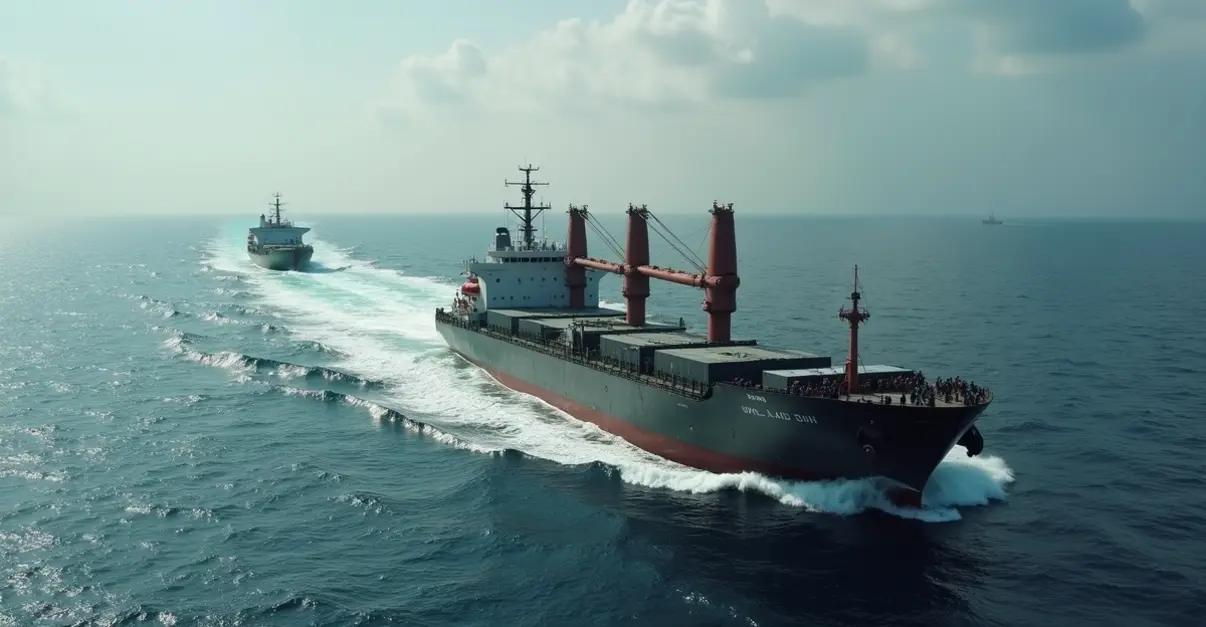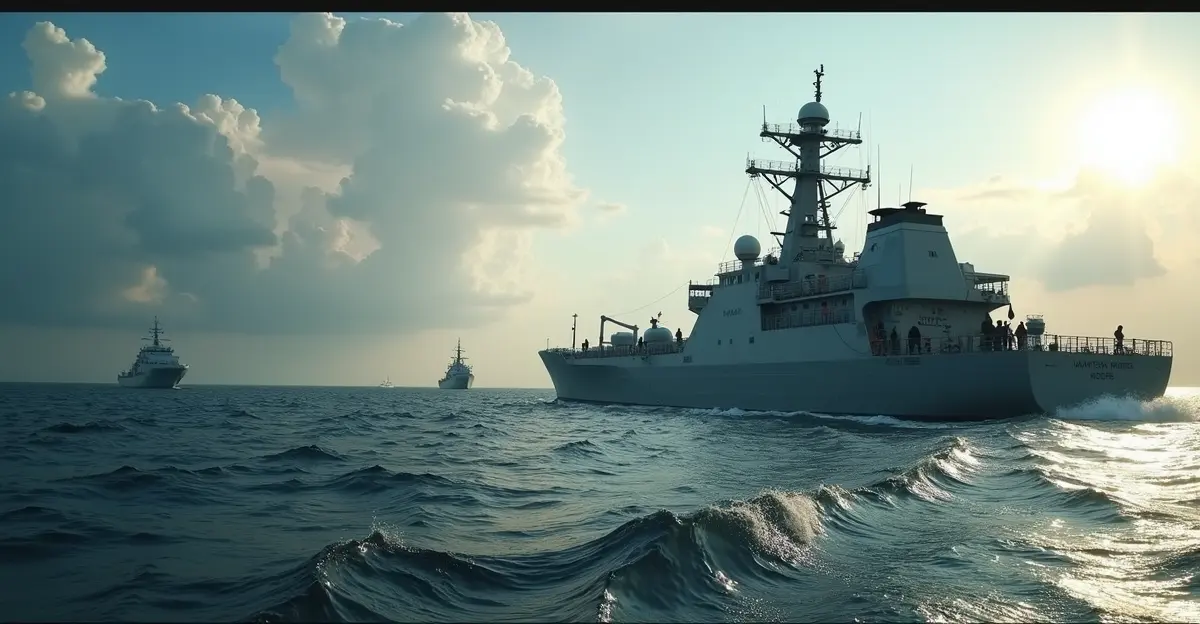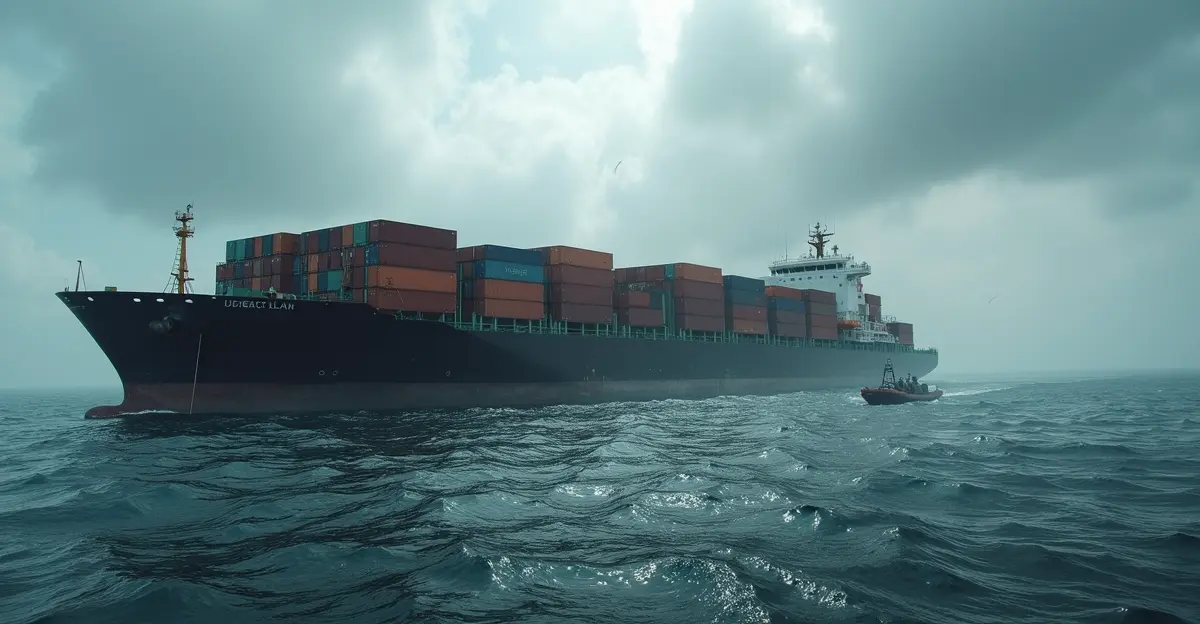Maritime security partnerships involving 47 nations through Combined Maritime Forces protect global trade routes against piracy, smuggling, and emerging threats. Private security companies complement naval efforts under updated legal frameworks.
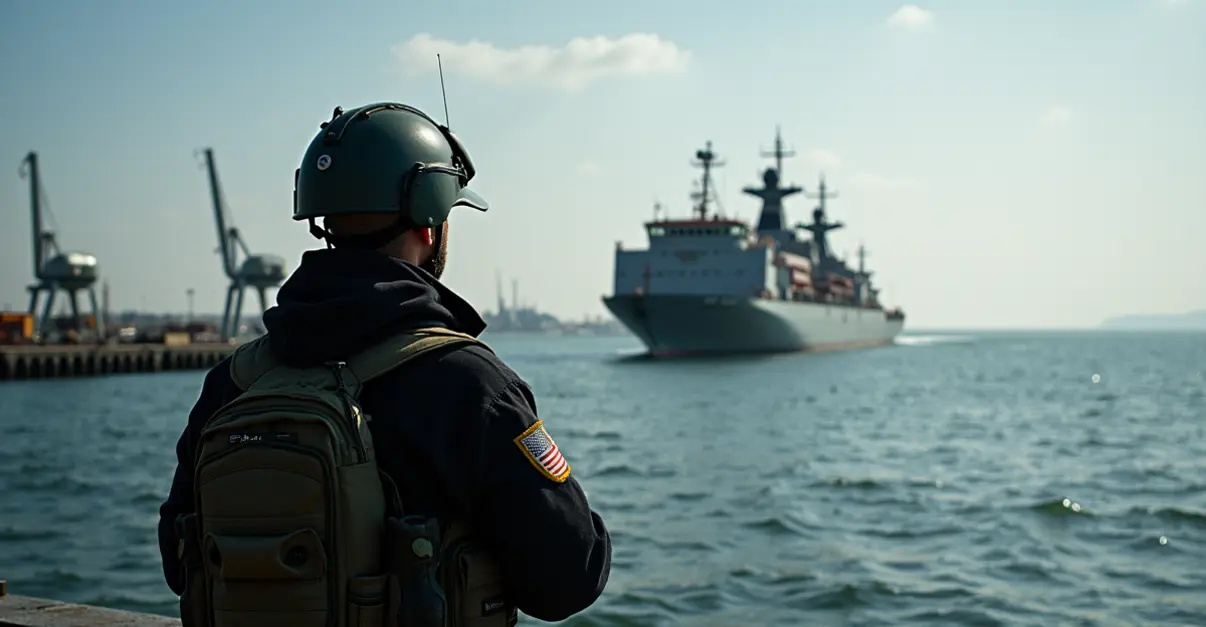
International Coalition Strengthens Trade Lane Protection
In 2025, maritime security partnerships have become increasingly vital for protecting the world's crucial trade routes. The Combined Maritime Forces (CMF), the world's largest 47-nation maritime security partnership, has achieved significant milestones in securing approximately 3.2 million square miles of international waters. 'Without maritime security, there can be no global security,' warned United Nations Secretary-General António Guterres during a May 2025 Security Council debate, highlighting the critical importance of these efforts.
Coalition Patrols and Legal Frameworks
The CMF operates through five specialized Combined Task Forces focusing on different regions and threats. CTF 150 handles maritime security outside the Arabian Gulf, CTF 151 focuses on counter-piracy operations, CTF 152 secures the Arabian Gulf, CTF 153 protects the Red Sea, and CTF 154 provides multinational maritime training. In 2025, command rotations saw Qatar assume leadership of CTF 152, Brazil take command of CTF 151, and Italy lead CTF 154, demonstrating the truly multinational nature of these security efforts.
The legal framework governing these operations relies heavily on the 1982 UN Convention on the Law of the Sea, which remains the cornerstone of maritime governance. However, piracy incidents increased by 35% in 2024 compared to 2023, with 116 reported incidents, indicating that security challenges are evolving rather than retreating.
Private Security's Growing Role
Private maritime security companies have become essential partners in protecting commercial vessels, particularly in high-risk areas. The Best Management Practices (BMP) Maritime Security Guidelines 2025 Edition provide updated protocols for ship operators to implement effective security measures. These guidelines help vessels protect themselves against piracy and armed robbery while transiting dangerous regions.
'The industry has seen a significant shift toward integrated security solutions that combine public and private efforts,' noted maritime security expert Captain Maria Rodriguez. 'Private security teams work alongside naval forces, providing layered protection for commercial shipping.'
Regional Security Challenges
Different regions face distinct security threats. In the Red Sea, Houthi attacks continue to disrupt shipping, while the Gulf of Guinea remains a hotspot for piracy and kidnapping. The Gulf of Aden and Mediterranean face trafficking challenges, and emerging threats include cyberwarfare, autonomous weapons systems, and naval mines.
The France-Indonesia Maritime Security Project focuses on port resilience and countering illegal activities in Southeast Asia, while the India-France Maritime Cooperation Dialogue strengthens naval coordination in the Indo-Pacific. These regional partnerships complement the broader CMF efforts.
Economic Impact and Future Outlook
The economic stakes are enormous. Global shipping carries over 80% of world trade by volume, making secure maritime routes essential for global commerce. Recent drug interdictions by CMF forces, including seizures of over $120 million worth of illicit drugs, demonstrate the tangible benefits of these security partnerships.
Looking ahead, experts emphasize the need for continued adaptation. 'Maritime security isn't static - it requires constant evolution to address new threats,' said security analyst James Thompson. 'The partnerships we're building today will determine the security of global trade for decades to come.'
As geopolitical tensions and emerging technologies create new challenges, the collaboration between national navies, international coalitions, and private security providers will remain crucial for maintaining the free flow of commerce across the world's oceans.

 Nederlands
Nederlands
 English
English
 Deutsch
Deutsch
 Français
Français
 Español
Español
 Português
Português




